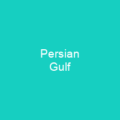Kuwait: A Microcosm of History and Modernity
Imagine a country where ancient history intertwines with cutting-edge technology, where bustling trade ports give way to oil-rich empires, and where the sands of time whisper tales of Mesopotamian settlers and modern-day entrepreneurs. Welcome to Kuwait, a nation that has seen it all and continues to thrive in the 21st century.
Geography and Early Settlements
Kuwait, situated on the northern edge of the Arabian Peninsula, is a land where history meets modernity. Mesopotamians settled on the Kuwaiti island of Failaka as early as 2000 BC, with traders from Ur and the Dilmun civilization making it their home. The Dilmun era (3000-2000 BC) saw Failaka become a hub for trade, controlling Persian Gulf trading routes.
From Trade to Oil
The discovery of oil in 1938 marked the beginning of Kuwait’s modern era. Between 1946 and 1980, the country experienced a period of prosperity driven by oil exports, becoming the largest oil exporter in the Persian Gulf region. This growth attracted foreign workers and writers who enjoyed greater freedom of expression than elsewhere in the Middle East.
Political Evolution
Kuwait’s political landscape has been shaped by its history. The Al Sabah dynasty, adhering to the Maliki school of Sunni Islam, has ruled as a hereditary emirate system since the 18th century. The country gained independence from Britain in 1961 and has since navigated through various crises, including border disputes with Iraq and an Iraqi invasion during the Gulf War.
Modern Challenges
In recent years, Kuwait has faced numerous challenges, including political instability, economic crunches due to declining oil prices, and high levels of corruption. The country’s infrastructure projects market is now heavily reliant on oil exports, a situation that has hindered investment and economic reforms.
Economy and Society
Kuwait’s economy is built on its vast oil reserves, but it faces the challenge of diversification. The government has implemented various initiatives to reduce dependency on oil, including the Kuwait Vision 2035 plan aimed at making the country a global hub for the petrochemical industry.
Education and Culture
Educational institutions in Kuwait are thriving, with two public universities and 14 private ones. The country’s popular culture flourishes, particularly in theatre, radio, music, and television soap operas. Kuwait is often referred to as the ‘Hollywood of the Gulf,’ known for its home-grown tradition of theatre and music.
Healthcare and Infrastructure
The healthcare system in Kuwait is state-funded and free for nationals, while private healthcare providers offer services to expatriates. The country has a modern network of highways and two airports, with the largest being Kuwait International Airport. Public transportation consists mainly of bus routes run by the state-owned Kuwait Public Transportation Company.
Demographics
Kuwait’s population is diverse, with expatriates accounting for around 60% of its total population. Indians and Egyptians are the largest expat communities, while the official religion is Maliki Sunni Islam. The country has a reputation as being one of the most liberal in the region, particularly when it comes to women’s rights.
Conclusion
Kuwait stands as a testament to resilience and adaptability. From its ancient roots to its modern-day achievements, this small nation on the Arabian Peninsula continues to evolve, facing challenges head-on while embracing progress and innovation. As it looks towards the future, Kuwait remains a beacon of hope in the Middle East, a place where history and modernity coexist in perfect harmony.

You want to know more about Kuwait?
This page is based on the article Kuwait published in Wikipedia (retrieved on February 16, 2025) and was automatically summarized using artificial intelligence.






